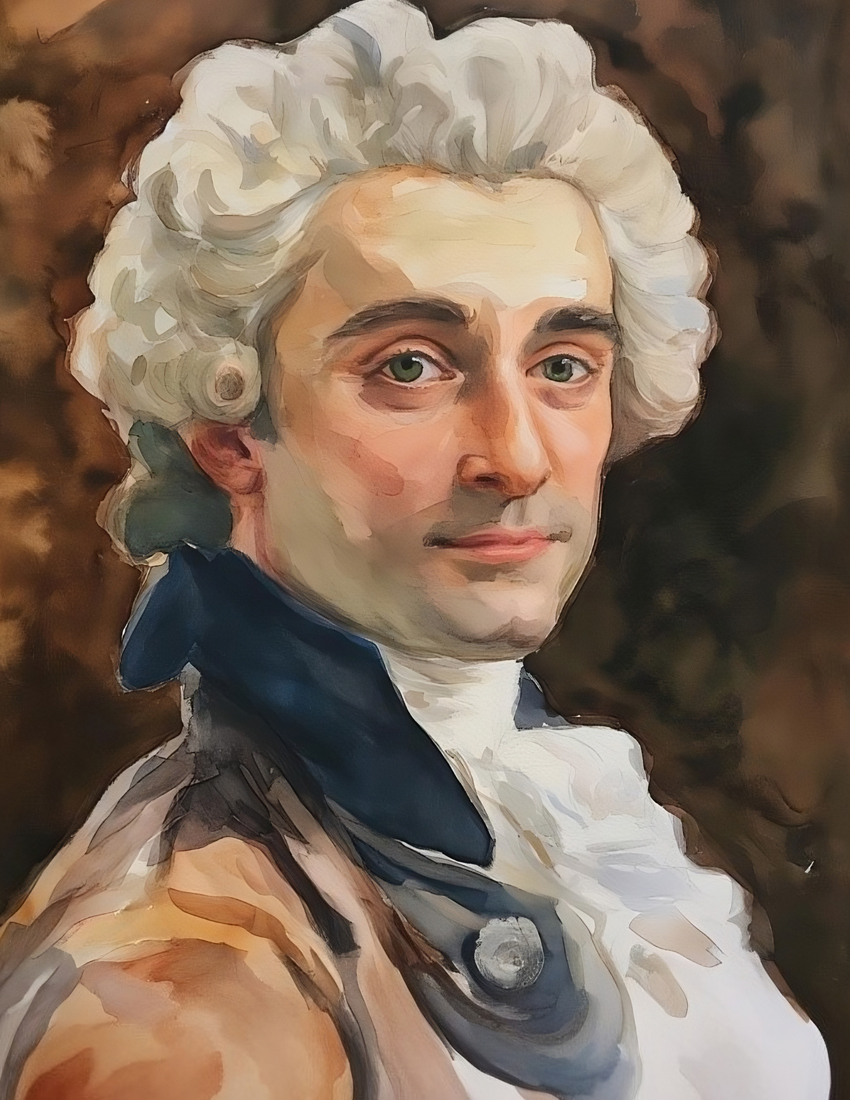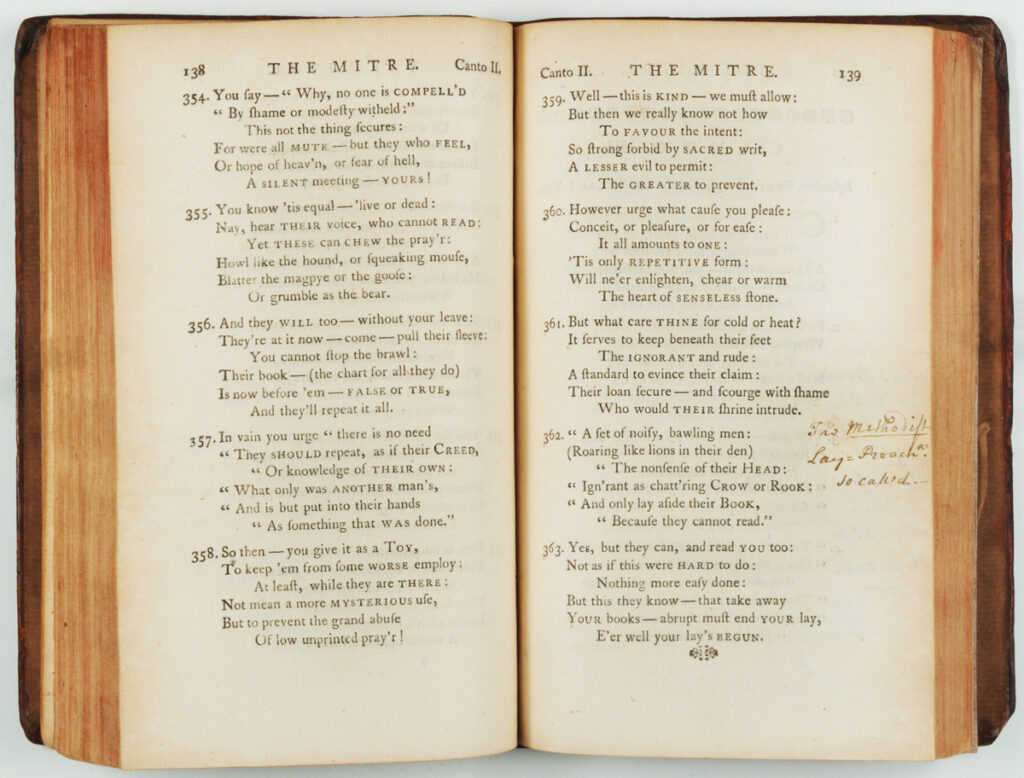Born: 1726, Sundridge, Kent, England.
Died: January 2, 1792, Canterbury, Kent, England.
Buried: Canterbury Cathedral, Kent, England.
Edward Perronet

Hymns by Edward Perronet
The Mitre: Perronet’s Poetic Powder Keg
In 1756, Edward Perronet lit a fuse that would blast apart his relationship with the Wesleys and send shockwaves through the Methodist movement. His weapon of choice? A scathing 279-page satirical poem called “The Mitre.”
This verbal grenade took aim at the Church of England’s hierarchy, particularly mocking the notion that only Anglican priests could administer the Eucharist. Perronet’s wit was as sharp as his quill, skewering bishops and traditional worship practices with equal fervor.
The Wesleys, still hoping to reform the Church from within, were horrified. John Wesley, in a frantic attempt at damage control, launched a suppression campaign that would make modern PR firms envious. He managed to track down and destroy all but about 30 copies of the inflammatory work.
Charles Wesley, never one to mince words, fired off a blistering letter accusing “Ted” Perronet of being the ringleader of dissent among Methodist preachers. The brothers’ fury was palpable – this poem threatened to derail their careful balancing act between revival and respectability.
“The Mitre” marked the end of Perronet’s association with organized Methodism. He would go on to preach independently, his words forever tinged with the fire that had once threatened to burn down the ecclesiastical establishment.
Today, “The Mitre” serves as a powerful illustration of the passionate debates that shaped early Methodism – and as a reminder that sometimes, the pen truly is mightier than the sword.
Edward Perronet: The Rebellious Hymn Writer
The quill scratched across parchment, ink flowing to form words of devotion and defiance. In a small room in Canterbury, Edward Perronet penned verses that would echo through centuries of Christian worship. Yet the man behind “All Hail the Power of Jesus’ Name” was far more than a simple hymn writer. He was a firebrand, a reformer, and a thorn in the side of the very movement that had nurtured his faith.
A Huguenot’s Son in the Heart of Anglicanism
Edward Perronet drew his first breath in 1721 in the quiet village of Sundridge, Kent. Born to Vincent Perronet, an Anglican priest with a rebellious streak of his own, Edward’s veins ran with the blood of French Huguenots who had fled religious persecution. This heritage of faith tested by fire would shape the course of his life and ministry.
As a young man, Perronet found himself swept up in the tide of England’s great spiritual awakening. The Wesleys, John and Charles, those titans of the Methodist movement, took the fiery youth under their wing. For years, Edward traveled the dusty roads of England alongside these spiritual giants, preaching a gospel of personal faith and transformation.
A Reluctant Orator with a Clever Tongue
Though Perronet’s gift for preaching was evident to all who heard him, he balked at the notion of speaking before John Wesley himself. The great revivalist’s persistent urging only strengthened Perronet’s resolve to avoid the pulpit in his presence. In a moment of delicious irony, when Wesley finally maneuvered him into speaking, Perronet mounted the steps, declared he would deliver the greatest sermon ever preached, and proceeded to read Christ’s Sermon on the Mount verbatim before promptly sitting down.
This clever defiance hinted at the storm brewing beneath Perronet’s compliant exterior. As the years passed, his unease with the established church grew, pushing against the boundaries of even the Wesleys’ reformed Anglicanism.
The Mitre: A Poetic Rebellion
In 1756, Perronet’s simmering discontent boiled over in spectacular fashion. His pen, once employed in crafting devotional verse, now dripped with satirical venom. “The Mitre” burst onto the scene, a scathing poetic assault on the Church of England that left no sacred cow unscathed. The Wesleys, horrified by this literary hand grenade, scrambled to suppress the work. Their efforts were largely successful, with only a handful of copies escaping destruction.
The publication of “The Mitre” marked a decisive break between Perronet and the Methodist movement. The man who had once rolled in the mud for the cause now found himself cast out, his relationship with the Wesleys irreparably fractured.
A Voice Crying in the Wilderness
Undeterred by this setback, Perronet forged ahead on his own path. He found a temporary home among Lady Huntingdon‘s Connexion, but even this proved too restrictive for his independent spirit. Eventually, he struck out entirely on his own, leading a congregation of dissenters in Canterbury.
In an interesting twist, Perronet set up his independent ministry in the very shadow of the Anglican establishment. He transformed the old archbishop’s palace into a house of worship, its ancient stones now echoing with hymns of praise and sermons that would have made its former occupants blanch.
A Legacy in Verse
Though his relationship with organized Methodism had soured, Perronet’s gift for crafting powerful, evocative hymns never dimmed. He published three volumes of Christian poetry during his lifetime, including a poetic rendering of scripture that showcased his literary prowess.
Yet it is for a single hymn that Perronet is most remembered. “All Hail the Power of Jesus’ Name” has become known as the “National Anthem of Christianity,” its triumphant verses ringing out in churches around the globe. The irony that this beloved hymn sprung from the pen of a man who railed against ecclesiastical authority is not lost on those who know his story.
The Final Verse
On January 2, 1792, Edward Perronet’s earthly journey came to an end in Canterbury. His final words were a fitting capstone to a life spent in pursuit of a pure, uncompromising faith: “Glory to God in the height of His divinity! Glory to God in the depth of his humanity! Glory to God in His all-sufficiency! Into His hands I commend my spirit.”
Today, as congregations lift their voices to sing “All Hail the Power of Jesus’ Name,” few realize they are participating in the legacy of a man who dared to challenge the religious establishment of his day. Edward Perronet – preacher, poet, and rebel – left his mark on Christian worship, his words a testimony to the power of individual conviction in the face of institutional opposition.


